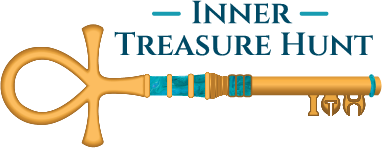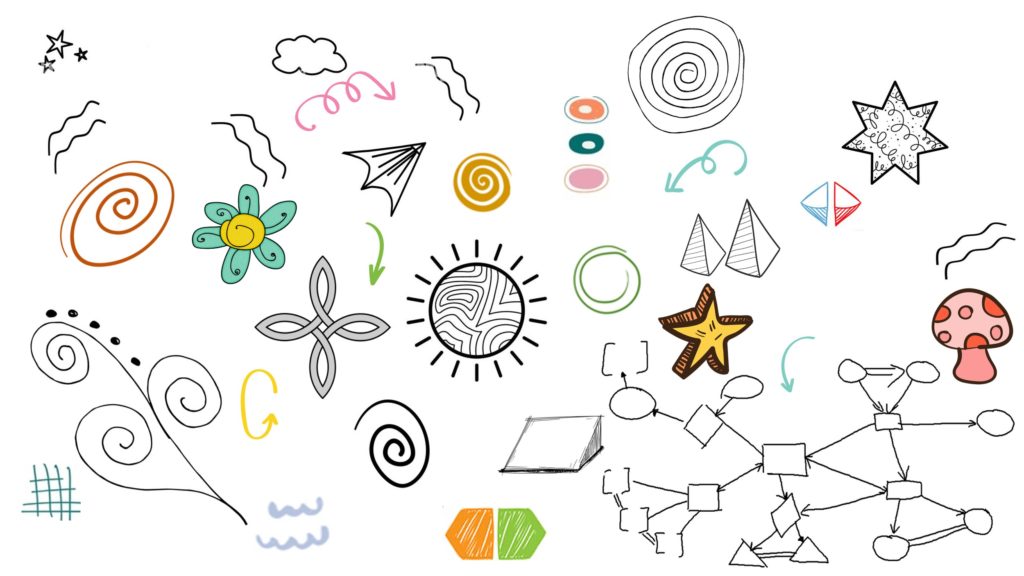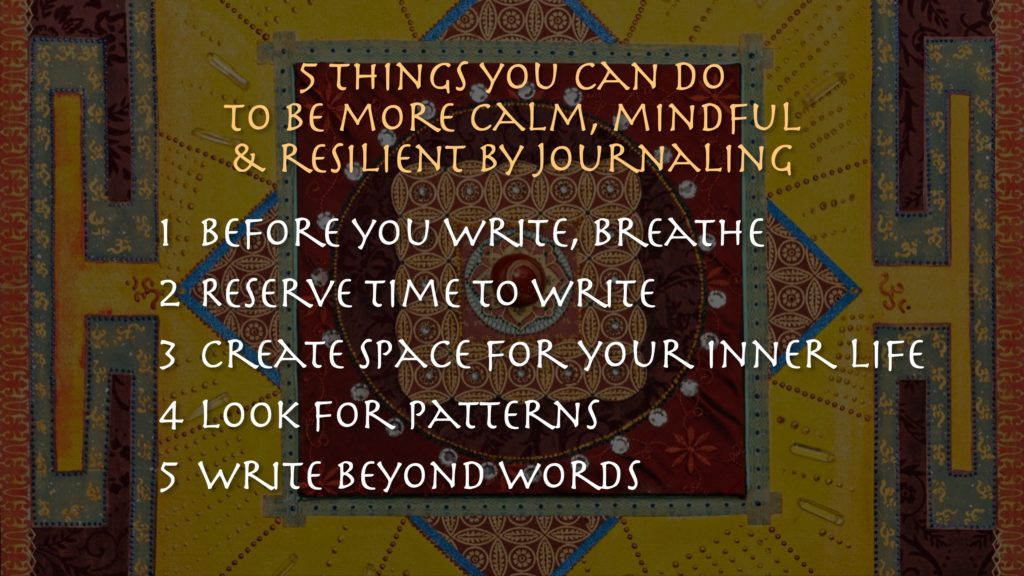Journaling is a private conversation you have with yourself that is not censored or edited. Your journal is where you write to yourself, for yourself; a place to express both sides of your brain, right (analytical/pragmatic) and left (intuitive/creative). Journaling benefits you over time by becoming your story, revealing your patterns, and helping you become more calm and resilient.
Gaining clarity and insight is an internal process which benefits from having a written record of conscious thoughts and subconscious insights (dreams, visions, etc.). Your journal is where you ask questions and listen for answers. You can consider a journal to be a doorway to your inner life, and your inner life is the doorway to your own truth. Meeting your self on the deepest levels of your being is the most beneficial thing you can do for yourself, and a journal is powerful mechanism for making that possible.
Can a journal help me fulfill my destiny?
Yes, by helping you envision your ideal future, identifying obstacles in your way, and marking your progress along your life path. This is why every lesson, meditation, and live event at Inner Treasure Hunt includes time for students and members to write.

Journals become records of focus, records of being mindful, records of finding one’s path in life.
Journaling benefits them because they want to move forward in their lives and be masters of their fate. They use the moon’s cycles to empower themselves by using the new moon as a time of beginning when they write aspirations for the month ahead. They keep their aspirations alive and powerful by working towards achieving them and writing about the experience. They use the full moon, a time of culmination, to assess their progress and identify what’s next in their lives.
Throughout the month, to help stay on track, many of them do short, daily, guided meditations that focus on balancing their energy centers, healing chronic illness and pain, and bringing peace and grounding into their lives. Writing about these experiences makes them real and more actionable, and is self-acknowledgement of taking steps to be healthy.
What should I write about?
Write about a dream you remember, or a goal you have, or a thought that keeps recurring, or an affirmation that resonates with you. Leave a record of yourself that you can return to. Take time for yourself, even it’s just one or two minutes a day. You’re worth it.
Where is a good place to start?
Get a journal, write the date and an entry. Then jot something down every day. Moving forward means breaking up old emotional and behavioral patterns that are holding you back, and setting the stage for new patterns that will empower you on your journey. But patterns can be hard to see, and once you see them, they can be hard to change. Here’s where a journal can be especially helpful.
By going back and reading what you wrote in the past, you can begin to see longer-term patterns you need to let go of. And by writing every day, you can feel empowered by describing your experience of creating new patterns in your life.
In a recent interview in Medium, Suteja (who journals every day) talked about journaling benefits and what happens when she reviews the drawings, ideas, plans, dreams, and visions in her journal: “I’m able to make connections and intuit meanings in ways that aren’t always consciously accessible. My subconscious has a voice each time I record a dream or vision, and my journal gives me more ways to listen to this subconscious voice.”
What are 5 tips for journaling?
- Before you write, breathe. Being mindful and calm begins within your body. Inhale through your nose and exhale by blowing out your mouth. Slow down your heart and relax your body. Stay still and listen for whatever comes up.
- Reserve time to write. Even if it’s only one or two minutes a day, get something on paper. Write about a dream you remember, or a goal you have, or a thought that keeps recurring, or an affirmation that resonates with you. Leave a record of yourself that you can return to. Consider journaling to be ‘me time’ and remember that you’re worth it.
- Create space for your inner life. Your inner life is the doorway to your own truth. Your inner life unfolds when you ask yourself questions about your own motivations, the source of your emotions, and why you make the decisions you do, then write your answers after deep introspection.
- Look for patterns. Re-read old entries to compare where you were with where you are, and to find patterns in your behavior that recur, for better or worse. Moving forward means breaking obsolete patterns and replacing them with beneficial ones. If your patterns or stories are holding you back, use your journal to change the script of your personal story and reinforce beneficial patterns.
5. Write beyond words. Our left brain thinks in words but our right brain thinks in pictures and symbols. Words are pale substitutions for what’s possible to express. Always give yourself permission to draw! It doesn’t matter if you’re not an artist; let your pen direct you to more than just the written word. Symbols, shapes, colors, lines, spirals, mind maps – anything that helps you express yourself to yourself is fair game.
5 Things Video
Resources
Some of the ideas in this post were originally published in Authority Magazine/Medium, December 14, 2021 interview by Heidi Sander entitled “Suteja: How Journaling Helped Me Be More Calm, Mindful and Resilient.”
Learn how to build resilience by clearing and strengthening your chakras in Awaken Your Chakras.
Learn more about building resilience in 5 Ways You Can Build Resilience According to the Ancients.
Learn how to be more calm resilient by mastering change in the course Self-Healing in Times of Change.
Learn more about natural healing and wellness at Wellness vs Mainstream Medicine, Lucid Dreaming Techniques from the Ancients, Powers of the Moon Series, 5 Ways You Can Build Resilience, and Awakening Your Chakras.
Learn more about healing and consciousness at Inner Treasure Hunt. If you liked this post, you can subscribe to the Inner Treasure Hunt newsletter to stay informed about new posts, programs, and events.
Please share this post with your friends! Just click below.




